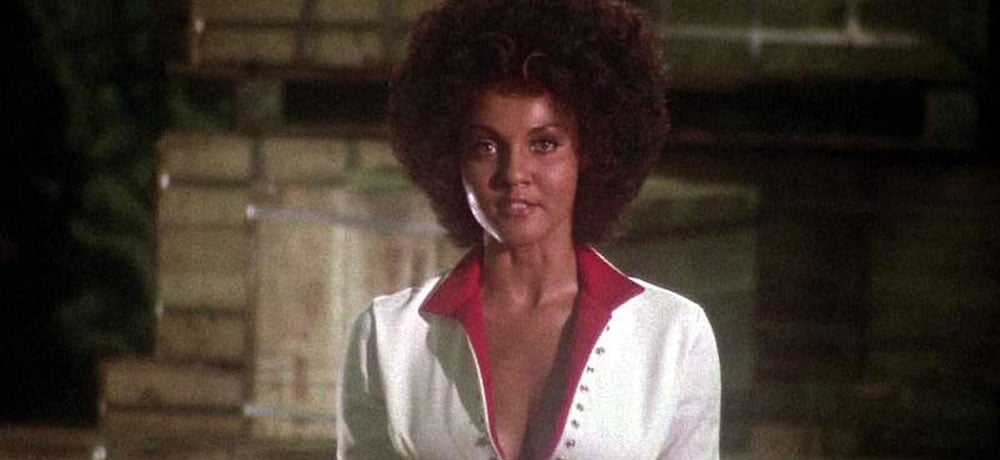


Blaxploitation Horror was a hot item in the ‘70s; in the aftermath of the initial wave of the Civil Rights Movement and a desperate lack of exploitation films portraying the Black experience, horror turned its lens towards an untapped audience. Black people wanted (and deserved) to see themselves up on the Saturday night screens and drive-ins across North America. Hollywood and independent studios began to look for ways to bring a new perspective to the screen, all while ensuring that the staples of the time - sex and violence - were firmly in place. Sugar Hill (1974) offers up none of the former and a muted stab at the latter, yet is still a very effective blend of ‘40s zombiedom with modern sensibilities.
Released by American International Pictures in a several month spring rollout, Sugar Hill did well with audiences, but as expected was a miss from mainstream critics, who dismissed it as a cheapjack revenge film with uneven technical credits. Honestly, I’m not sure they watched the same film I did; Sugar Hill pulls off the neat trick of feeling retro - and relevant - at the same time.
Meet Diana ‘Sugar’ Hill (Marki Bey - The Roommates), who sits at the bar of her boyfriend Langston’s (Larry Don Johnson - Street Tales of Terror) establishment, Club Haiti. The re-enactment of a Voodoo ritual complete with fevered dancing entices the crowd; but when it’s done, Langston is confronted by a group of white mobsters who wish to purchase the club on behalf of their boss, Morgan (Robert Quarry - Count Yorga, Vampire). When Langston refuses, he is beaten to death in the parking lot.
Distraught and enraged, Sugar seeks out the help of Mama Maitresse (Zara Cully - The Jeffersons), a priestess who resides in a swamp-surrounded manor. Sugar pleads with Mama to help her with retribution, and Mama calls forth Baron Samedi (Don Pedro Colley - Beneath the Planet of the Apes), a very animated spirit resplendent in top hat and tails, who grants Sugar her wish with the promise of wedlock after all is said and done. One by one, Langston’s murderers are fed swift and gruesome justice by Sugar, the Baron, and his army of cobwebbed, undead slaves. And they save Morgan for last…
Of course, Sugar Hill has a good reputation now; the advent of DVD and Blu-ray has shone a light on many lesser known and forgotten films from the era. But the Blaxploitation films for the most part have stayed in the consciousness of avid filmgoers because they still hit on the root nerve of injustice and inequality; that this film (and many others) can’t be seen as reminders of what was but rather of what still is, is scarier and sadder than any horror film could possibly be.
Many of the Black horror films of the time weren’t necessarily deep dives into the muddied mire of societal prejudices and systemic racism, but that was because the message was streamlined to accommodate the tropes that were necessary to sell the film - White people in positions of power and wealth were taken down by the oppressed and undervalued, all to the accompaniment of nudity and bloodshed. It’s very easy to imagine a Black moviegoer feeling empowered (if even for 90 minutes) by the heroic images flashing on the screen.
Sugar Hill is about as simplistic as an old EC Comics tale - and just as delicious: by no means graphic (rated PG - not that it mattered in the ‘70s anyway), revenge is measured out in entertaining ways, ala AIP’s flagship horror series, The Abominable Dr. Phibes (1971) and Dr. Phibes Rises Again! (‘72); decapitations, Snake-In-A-Box, quicksand, and multi handed murderous massages are the order of the day, dished out not cold but rather under the sweaty Louisiana sun (okay, actually Houston but it works).
This is why the film really works for me: there is a glee, much as there is in the Phibes films, a relish, in seeing the wrongdoers righted all the way up; it’s there in Sugar’s smile when the undead attack, or when the Baron shows up in different guises and you just know shit’s about to go down. The direction by Paul Maslansky (producer of the Police Academy films) attempts to keep the mood light and macabre, and it is, but that probably has more to do with colorful production design than any efforts by Maslansky in his lone directorial attempt. (There are foggy swamps abound, cushioned by eerie tribal music, which always helps.) The script by Tim Kelly (Cry of the Banshee) offers many hilarious bon mots for Sugar, again alluding to the distinct AIP style; this more than makes up for any shortcomings attributed to the director or a few cast members.
So many of the cast get it right, though. Quarry makes an excellent, slimy victim, Colley has the time of his life as Samedi, and Bey should have had a much bigger career - she fills the frame with strength and beauty that is impossible to turn away from.
Val Lewton style zombies may not have been in vogue in the ‘70s; but the sight of slaves rising up to mete out justice on oppressors will never get old, and nor should it. Sugar Hill isn’t preachy in its message, nor should it have to be - not when it’s as plain as the cobwebs on our faces.
Sugar Hill is available on Blu-ray from Kino Lorber.
Next: Drive-In Dust Offs: BRAIN OF BLOOD (1971)